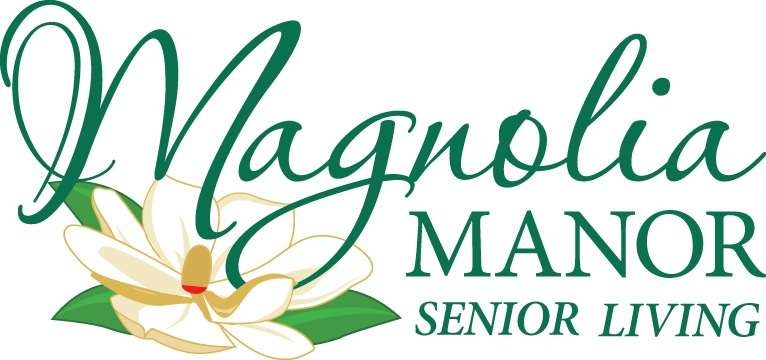How To Choose a Retirement Community in Georgia
Don't have time to read this now? Download a pdf version instead.
Knowing When the Time is Right

There may be other signs, but these are typically some of the most common signs it’s time for a move into a retirement community.
- Physical changes.
Suddenly or gradually looking unkempt or losing weight may signify a parent is having trouble keeping up at home. - Poor recovery or an ongoing health condition.
Most chronic health issues eventually require more care. Similarly, if Mom or Dad isn’t recovering as well from colds or flu, that could be a sign. - A recent accident or near-accident.
Even minor accidents can have tragic consequences for seniors. Keep an eye out for any increased frequency in accidents. - The house and yard aren’t well maintained.
More signs of overwhelm at home offer cues that it’s time for Mom to move into assisted living. - Mail is piling up.
You may notice piles of mail when Mom starts to become stressed by reading, paying and filing bills. - You (or another caregiver) are maxed out.
If you’ve been reading this list and recognize that many of these things are being taken care of properly -- but by you -- it may be a sign that you are maxed out.
It is okay to feel this way - we are all only human! Chances are, Mom or Dad has noticed the added stress you’ve taken on and is worried about you, too. When you’ve reached the point where it is difficult to sustain caring for Mom or Dad with caring for yourself and perhaps your own family, making the move to assisted living may be best for everyone.
What’s It Like Moving into Senior Living
At Magnolia Manor, we have many conversations with residents and prospective residents about their decision to move into one of our communities. Overwhelmingly, a majority of them share that they only wish they had made the move sooner. Independent living is a goal for many of us, and it can be difficult to make the decision to move into a retirement community if you’re afraid of losing independence. We offer independent living options at several of our campuses, as well as assisted living.
It’s important to us at Magnolia Manor that you understand that senior living doesn’t have to mean losing your independence. But it can mean increasing the quality of your life tremendously, spending time with wonderful friends, making new friends and gaining so much more than you may be afraid of losing.
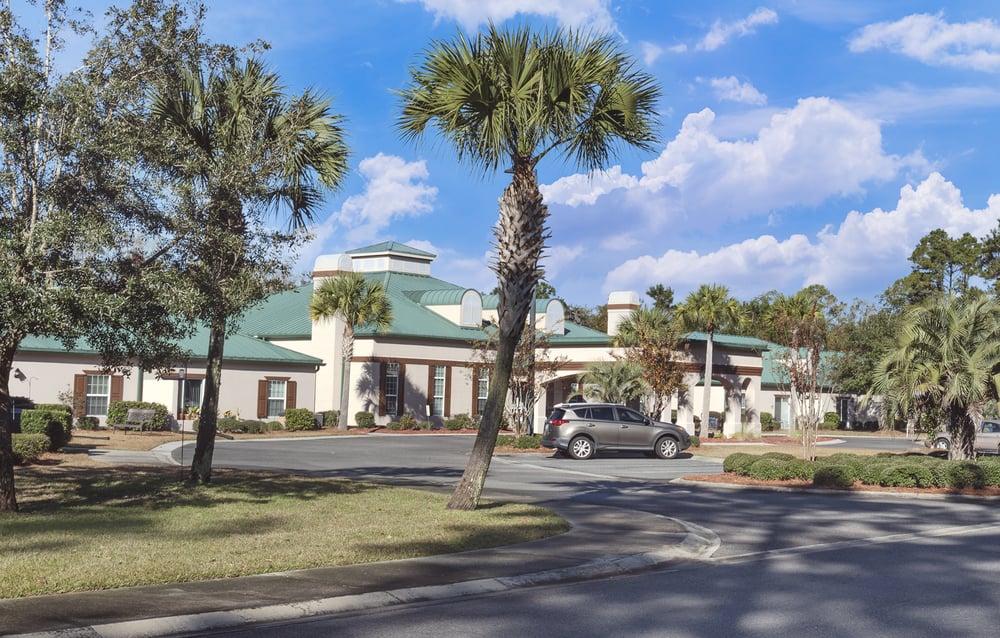
What Type of Care Do I Need
Having an Honest Conversation
The senior living conversation can be a difficult one for seniors and their families. The reality is that both seniors and their children or caretakers recognize the signs we mentioned previously. It’s important to have an honest conversation as early as possible to avoid making a quick decision. After all, this decision will impact your quality of life for many years to come!
Chances are the stress of living in and caring for a home has been weighing on you for some time, and making this decision will take a huge weight off your shoulders! Part of that conversation should include the ideal level of care for you or your loved one. Pricing can vary widely between types of care, so accurately identifying the proper level of care now can avoid any “sticker shock” or financial difficulties down the road.

Physician Medical Evaluation
When moving into a retirement community, your administrator will request a physician assessment. The medical evaluation is a detailed form you and your loved one’s doctor will complete.
The physician will include information about medications, health conditions and other details. He or she will also provide recommendations regarding the need for 24-hour care.
Your physician can provide his or her assessment; however, your doctor is also limited by the information provided by their patient and/or their family. Be sure to be upfront about your limitations and conditions. In addition to the physician evaluations, it’s important to take an honest look at day-to-day life and its challenges so that your experience in senior living is as fulfilling as possible.
Types of Living at Magnolia Manor
While every retirement community is different, we provide four (4) levels of care -- plus rehabilitation services -- across the eight (8) campuses of Magnolia Manor. Following is an overview of each level to help you determine the appropriate level of care for you or your loved one’s needs.
Independent Living
Independent living is a rather broad term generally for residents age 62 and over that could include an apartment, townhome, duplex, or even villas. It could also be a building with senior apartments that includes an emergency call system to summon help when needed. Some are even more robust, with dining halls, social hours, and group activities. The exact definition of independent living depends on the community.
If you are generally in good health and can live without regular assistance, independent living may be a fit for you or your loved one.
When comparing independent living options, you are likely to find the greatest differences between them in the size and type of housing. Options range from small efficiency apartments in a larger building, to a detached home with a garage inside a larger retirement community.
Assisted Living / Personal Care
When you need a little bit of help to make things easier, assisted living may be your best choice. Offering much of the flexibility of independent living, but adding in help when needed for basic tasks, including showering, dressing or taking medications, assisted living makes life that much easier.
Assisted living is typically for someone who needs regular assistance, but does not have advanced medical issues or requires having someone on-hand at all times. Personal care is very similar -- both provide somewhat independent living but with regular assistance for daily tasks.
The state of Georgia makes a distinction between assisted living and personal care in regard to the administration of medication. In personal care, the staff member can only take the medication to the resident, who self-administers it. In assisted living, the staff member administers the medication to ensure it’s taken properly.
Although there are some retirement communities that provide personal care as an option, most, including Magnolia Manor, are gradually making changes so that every personal care community becomes an Assisted Living community.
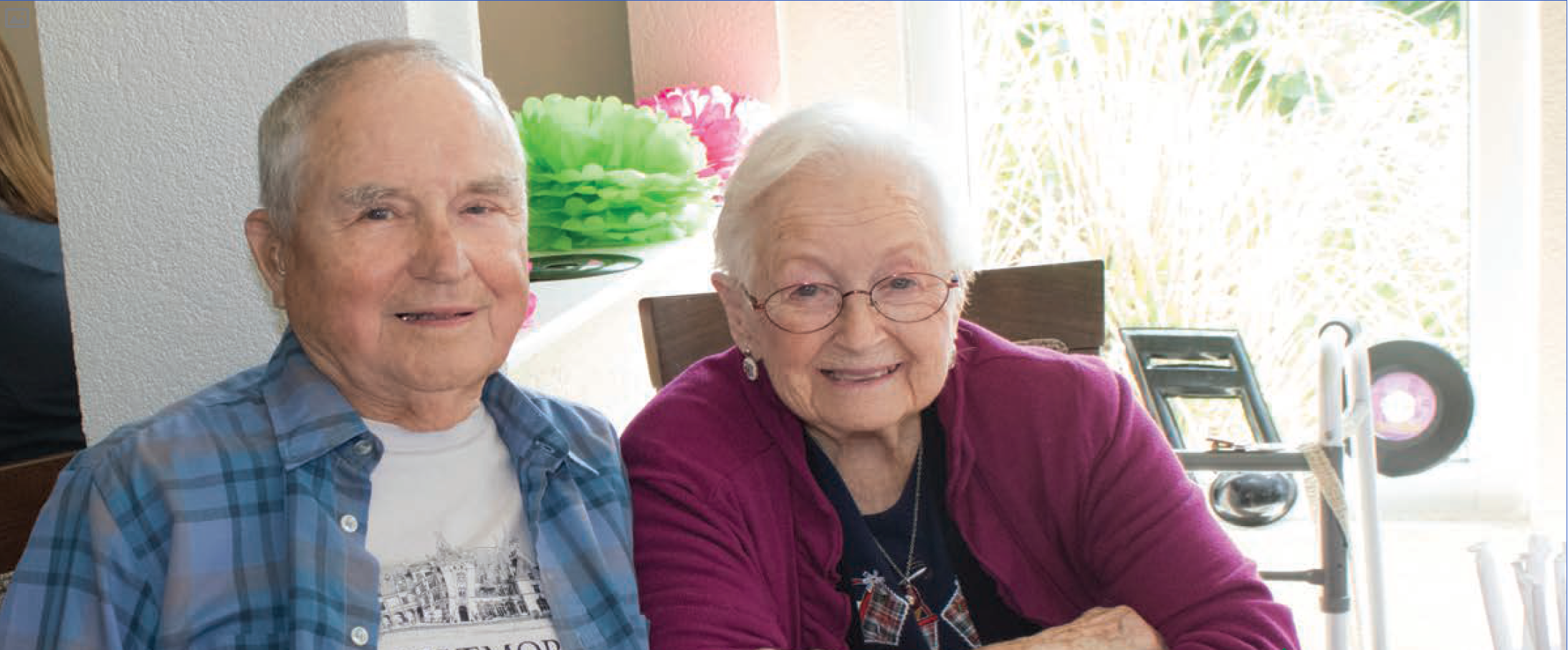
Assisted Living With Memory Care
If you’ve seen the signs and a doctor has made a diagnosis of Alzheimer’s Disease or other forms of dementia, assisted living with memory care can provide quality living with peace of mind. As this is a highly specialized level of care, there are typically very few spots available, with increased costs. It is critical to explore options as soon as a decision is made to pursue this type of senior living.
Skilled Nursing
Skilled nursing centers provide regular monitoring for residents with serious health issues. While the level of care is more hands-on in skilled nursing, however, life in skilled nursing is still incredibly vibrant, with activities, visitors and one-on-one care from experienced, caring staff.
Rehabilitation
When accidents or surgery make life temporarily challenging for Mom or Dad, rehabilitation services can save the day. The rehabilitation centers located at some of our Magnolia Manor retirement communities provide therapy assistance for seniors during recovery.
In addition to helping Mom or Dad get back on their feet, rehabilitative services can provide an excellent opportunity to experience senior living up close and personal. These opportunities can be tremendously helpful in answering questions and providing peace of mind when the decision is made to move permanently into senior living.

Affording Senior Living
One of the biggest questions many seniors ask while choosing a retirement community focuses on price. It’s true: Senior living is often a major investment.
Our Cost of Living Calculator can help you determine how much you should expect to spend if you decide to move into one of our eight campuses at Magnolia Manor.
Reducing the Stress of Paying for Senior Living
There are many ways to make assisted living more affordable. Over the past five decades, Magnolia Manor has been “home” to thousands of residents with different financial backgrounds. Many of them have taken one or all of these four steps to help alleviate financial concerns:
- Start planning now.
This is a critical decision that will impact you and your loved ones for many years to come, so doing your due diligence to know the ins and outs of various retirement community options is critical. The sooner you start researching and planning, the better. Some communities have waiting lists, so starting now means more flexibility in your choices down the line. - Make the best choice the first time.
Among the many residents we’ve met over the years, we’ve found that those who are most satisfied with their first choices of senior living communities made multiple visits. They also asked questions and gathered data about on-call staff, staff-to-resident ratios, nursing availability, discharge policies, and more. Don’t be afraid to ask questions - that’s what we’re here for! - Consider different locations.
The cost of living in different areas will vary widely. Although you may believe one city or county is the only choice for you, you might be able to reduce costs by considering retirement community options in other areas. Faith-based nonprofit facilities are sometimes less expensive than for-profit companies. Another factor that can impact price is the age or size of the facility. Remember: it’s not the age of the building that determines liveability, but the quality of care and the friendliness of staff. - Be flexible on room size.
When you’re purchasing a house, among other things, the price depends on the location and size. Those same factors can affect the cost of senior living options. The size and location of your room within a retirement community can make a big difference.
Assessing Your Budget
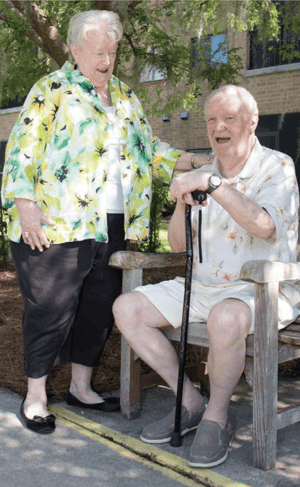 When preparing to choose the best retirement community for you or a loved one, a frank and thorough review of finances is essential. There may be enough “cash on hand” to cover senior living expenses for many years to come. Or perhaps a review of your finances will show that extra assistance is needed. After using Our Cost of Living Calculator to determine your approximate monthly costs, review your results alongside your budget to determine where you may have additional needs.
When preparing to choose the best retirement community for you or a loved one, a frank and thorough review of finances is essential. There may be enough “cash on hand” to cover senior living expenses for many years to come. Or perhaps a review of your finances will show that extra assistance is needed. After using Our Cost of Living Calculator to determine your approximate monthly costs, review your results alongside your budget to determine where you may have additional needs.
In some circumstances, you may already have funds available through savings or investments. However, selling a home or cashing out accounts may be required. In those instances, it’s critical to determine the length of time needed to acquire the funds so any processes can be started as soon as possible. No one wants to be stuck waiting after deciding the time is right for a move to senior living. Whenever possible, accessing funds in a timely fashion should not impede your plans or timeline.
Additional resources may be available for those with long-term care insurance, or for veterans and their spouses.
Veterans’ Program
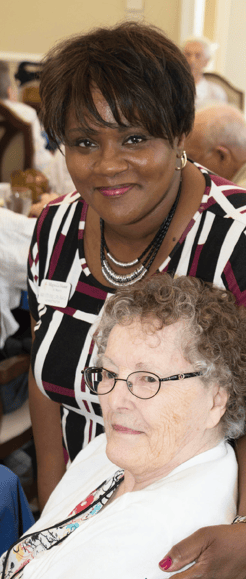 If your loved one or his/her spouse served in the military during designated wartimes, they may be eligible for a government benefit that can alleviate a significant portion of senior living costs (even if they did not see combat). In order to apply, you must already be living in assisted living or personal care. Still, you can get the ball rolling early with paperwork, which can help tremendously and provide you with estimates so you know how much assistance you may receive. Receiving government approval for these benefits can take several months.
If your loved one or his/her spouse served in the military during designated wartimes, they may be eligible for a government benefit that can alleviate a significant portion of senior living costs (even if they did not see combat). In order to apply, you must already be living in assisted living or personal care. Still, you can get the ball rolling early with paperwork, which can help tremendously and provide you with estimates so you know how much assistance you may receive. Receiving government approval for these benefits can take several months.
Long-Term Care Insurance
If you or your loved one has purchased long-term care insurance in the past, it’s important to call the insurance company and get details of your policy as soon as the decision is made to move into a retirement community.
Depending on your level of coverage, your out-of-pocket costs could vary widely.
Medicare / Medicaid
When assessing your finances and planning for senior care, it’s important to note that Medicare and Medicaid do not cover assisted living expenses in Georgia.
Additional Costs Often Associated With Senior Living
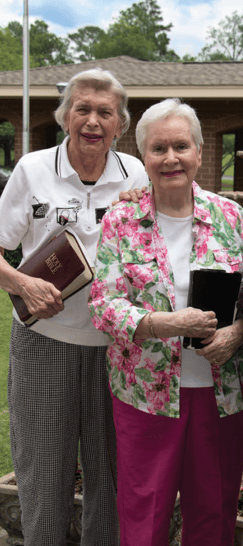 In addition to the monthly cost associated with senior living, there are other considerations you should factor into your decisions. These costs can add up quickly and significantly, but are often neglected during early financial planning for a move into a retirement community.
In addition to the monthly cost associated with senior living, there are other considerations you should factor into your decisions. These costs can add up quickly and significantly, but are often neglected during early financial planning for a move into a retirement community.
Buy-In fees
Although we do NOT typically require these at Magnolia Manor, many retirement communities require a large initial buy-in fee before moving into their communities.
These buy-in fees can vary widely -- including up to several hundred thousand dollars! When conducting research into potential senior living facilities, it’s critical to ask questions about buy-in fees up front if you cannot find the information easily on a community’s website.
Long-Term Contracts
If you move into another community, only to discover that it is not a fit, a long-term contract can mean being “stuck” in that community. Or, it could mean a significant cost to break the contract.
This is another common industry practice that we do NOT practice here at Magnolia Manor. Our residents are never trapped in long-term contracts.
Rate Increases
You put in your due diligence to research senior living communities, make several site visits and ultimately, make the best choice for you or your loved one. Your budget is planned based on the expenses quoted to you during the discovery process.
But did you budget for rate increases?
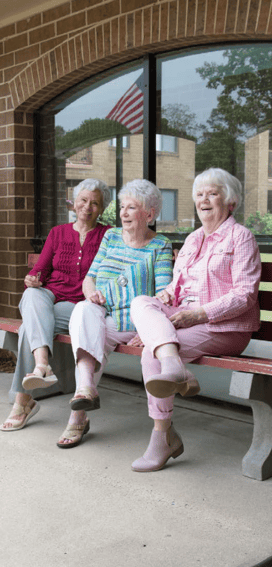 Rate increases are typical at every senior living community. As with other expenses, annual rate increases can vary widely.
Rate increases are typical at every senior living community. As with other expenses, annual rate increases can vary widely.
While no retirement community can predict what next year’s rate increase will look like, it is prudent during the research and discovery process to ask all communities about their past increases. How much were they? Was there ever a big jump? Is there an explanation for any large jumps?
Communities should be able to answer those questions, and answer them happily. At Magnolia Manor, our board votes whether or not to give rate increases each year, and we can explain to you how we arrived at a decision and why the decisions were made. Any reputable senior living community should be able to do the same.
Maintenance / Housekeeping Costs
In some retirement communities maintenance is included with your rent. Others charge to fix broken appliances or handle other maintenance issues, as well as housekeeping and laundry. It’s important to discuss these and other expectations to determine if there are any additional costs that could impact your budget.
Having this information in advance can prevent any stress related to a change in budget plans next year, and down the line.
Doing Initial Research
Identify Your “Wants” and “Needs”
Before you begin your research, it’s important to define what you want and need from a senior living community. Although your priorities may change after you get further in your research and decision making, identifying what’s most important now can help you best focus your time and energy on potential matches for your retirement community wants and needs.
In our many conversations with prospective residents, we have noted several of the most common factors affecting decisions about retirement communities.
Note: It can be dazzling to see or visit brand new communities that look fancy, but often times those facilities are lacking in other ways. Attention to the needs of the resident will impact your day-to-day life in much more profound ways than living in a new building. Prioritizing what’s really important to your health and happiness is critical!
Location
There are many variables that can impact your choice in location. Being near family, close to doctors, and more will help determine which locations you consider while searching for a senior living community.
Price
It’s a reality that price matters for a significant portion of the population. As part of your initial research, review your finances and determine what price range is ideal and what will max out your budget so you can identify which communities fit into your price range.
Pets
Do you have a pet at home? Some communities welcome pets alongside residents while others welcome pets as visitors, but not as residents. It’s best to contemplate a future for your pet early in the process so you can determine how much of an impact a pet will have on your decision.
Driving
If you move into a senior living community, will you be able to park your car and drive around town like you are used to? Flexibility here will depend on the community, so if continued driving is on your radar (pun intended!) you may want to add this to your list of important considerations.
If you do intend to continue driving, it may also be prudent to ask about parking options for your vehicle. Is there a garage or parking lot spaces available (and do they cost extra)?
Outside Transportation
If you aren’t driving (or if you don’t feel like getting behind the wheel all the time), you may want to rely on outside transportation for trips to doctors’ offices, supermarkets, shopping malls and other stops. Will you need or want to take advantage of this type of service? Be sure to note it so you can identify which communities can meet that need.
Activities
Depending on your habits and hobbies, there are communities with a vast range of activities to meet the needs of their residents. Here at Magnolia Manor, each community has its own list of activities designed to meet the many needs of our residents, including:
- Arts & Culture. Music, poetry, painting, writing, storytelling and other fine arts. Plus, opportunities to learn a second language, take horticulture classes, gain hands-on computer time and more.
- Spiritual Care & Growth. Chaplains offer pastoral care, support group care, services
of worship and Bible study. - Health & Wellness. Wellness centers and fitness programs keep residents looking and feeling young and energetic.
- Events. The calendars of our residents are jam packed with fun things to do with each other and their families.
- Social Activities. We place emphasis on nourishing your mind, soul, and body.
You may have activities in mind that are crucial to your decision, or you may want to flesh out your list as you research various communities and see what they offer. It’s important to identify and document your desires in this area, though -- they will have a major impact on your day-to-day life.
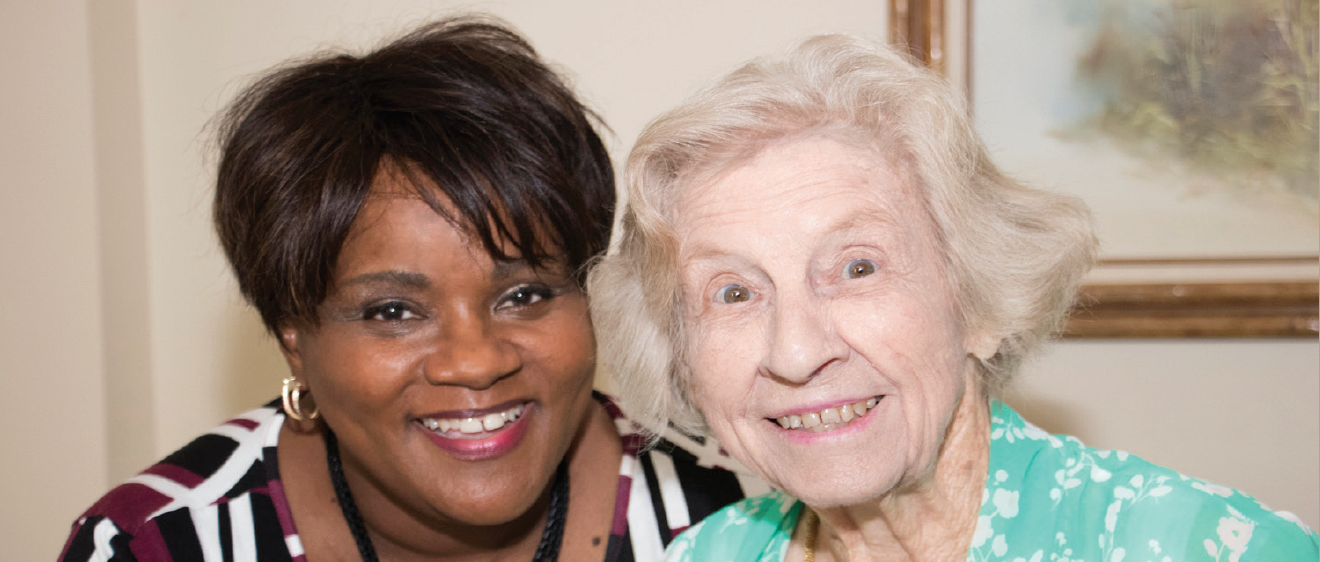
Dining
We all have to eat! The quality and variety of food provided by your retirement community is important to many residents, and who can blame them?! At Magnolia Manor, we believe you shouldn’t have to compromise on taste when living at one of our eight campuses. We strive to meet dietary restrictions, allergies, preferences and health needs.
If you have special requests or needs, define those early so you can identify which communities are capable of meeting your needs.
Accommodating Needs Over Time
Depending on your current situation, you may be looking for independent living. However, you may want to choose a community that has higher levels of care. Knowing that you won’t have to move across town if your health situation changes can provide significant peace of mind when choosing a senior living campus.
Other Factors
Are there other elements affecting your day-to-day life now that you want to be sure are included in your future home? Jot down notes, or ask friends and loved ones what you may be missing. Being thorough at this part of the process can help prevent any frustrations or issues once you get further into the process of making your final choice.
Timeline
Choosing a senior living community is a major decision that has the potential to impact your life for several decades. It’s definitely not one to take lightly!
While emergencies and other elements outside our control can sometimes hasten the need to decide on a retirement community, planning can help alleviate that stress and prevent those emergency situations from compromising your ability to make a thoughtful decision.
Some senior living communities accept residents as early as age 55, while others begin accepting residents at age 62 (at Magnolia Manor, our residents start at age 62). It may make sense to start doing preliminary research at or even slightly before those ages to identify your wants, needs, and budget.
Wait List
Another reason to map out your timeline well in advance? Many communities -- including some of our Magnolia Manor campuses -- have waitlists. It doesn’t cost much to put your name on a waitlist; but doing so can help ensure that when the time is right, you don’t have to settle for your second or third choice when making a decision.
Receiving Financial Assistance
Earlier in this eBook, we discussed several financial initiatives that can impact your choice of retirement community. While Medicare / Medicaid do not pay for some types of senior living in Georgia, long-term care insurance and veterans’ benefits (when applicable) can remove a significant financial expense and burden.
Paperwork and payment from benefits like long-term insurance and veterans’ benefits can take up to 6 months. Even cashing in bank accounts, stocks or other funds can take some time. Consider these elements when planning your timeline to ensure any and all financial resources are available and processed in a timely fashion when you are ready to make your senior living decision.

Online research
Now that you know what is most important for you in a senior living community, it’s time to start finding communities that meet your criteria.
Data from Pew Research Center shows that ⅔ of seniors use the Internet. In other words, you (or someone you know) are online, or else you would never have found this publication! The Internet is a fantastic place to do initial research when making your choices.
One of the easiest ways to get started is to do a search for “retirement communities in [CITY].” Search for communities in every town or city you’ve identified as a potential fit for your needs. If you prefer to track your research using a computer, you may want to create a spreadsheet with the name, location, and amenities of each community. Or, you can track manually in a notebook.
Download any brochures, eBooks or other information that will help shed light into each community and its amenities, so you can effectively narrow down your list later. At this point, just focus on information gathering.
Ask For Recommendations
Talking to friends, family, and neighbors about their experiences with senior living communities is a classic method that never goes out of style. Reach out to people you trust and let them know you’re ready to make the move. Ask if they’ve had any experiences, and where they might recommend.
Considering the input you gain from recommendations alongside your own research can help you make a more informed decision down the line.
Narrowing it Down
Most Important Factors
You’ve written down all the factors that could impact your decision, have asked for recommendations and have researched senior living communities online. Now it’s time to whittle that list down to those that meet your essential criteria.
You started by creating a list of “wants” and “needs.” Now it’s time to identify your “musts.” In all likelihood, you’ll find communities that meet some needs but not all your wants. How will you prioritize those “wants” and “needs”?
Figuring Out Where to Visit
Determining which senior living communities to visit is both an art and a science. In some cases, you may have gotten a hunch that a certain community is a fit during your research. In other cases, you will likely have to review your notebook or spreadsheet with the data and variables you’ve worked on from earlier in this guide.
Take a look at the “musts” that you require in a retirement community and scan your notes to determine which communities meet all your “musts” (or the highest number of them). Those are likely a good place to start with site visits.
A goal here is only to visit those communities that are at the top of the list and that are most likely to meet your wants and needs.

Site visits
When you do schedule a site visit with retirement communities, it’s important to maximize your time on site. It can be easy to get wrapped up in the moment and dazzled by what you see and hear during a tour. But remember: You’re here to gather information that will make for an easier decision!
Questions
Many senior living communities will answer some of the most common questions on their websites. But that doesn’t mean you shouldn’t be armed with more questions during your site visit! Here are several questions you should ask while on campus:
- What is the nurse-to-resident ratio?
- If you’re pursuing independent living options, are there planned activities?
- Is your community for-profit or nonprofit?
- What services or amenities are included with monthly rent (eg. housekeeping, laundry, utilities, phone, trash, cable, maintenance, medication reminders, etc.)?
- Do you have long-term leases or buy-in fees?
- Are you a CCRC (continuing care retirement community)?
- Can I speak to some of your residents (this can be a great way to find out what life is really like at a community)?
- Does your campus provide accommodations for family and friends who are visiting?
- What makes your community different from others?
- Do you allow overnight guests (people and/or pets)?
- Do you have chaplains on campus?
- What training and background checks are required of staff?
- What security measures are in place to protect residents?
- And more! Don’t be afraid to ask questions!
What to Observe
In addition to asking questions during your visits, it’s important to keep your eyes ears, and nose
Cleanliness
A generally fresh and clean appearance is important. Take a look at baseboards, corners, and windows to ensure there is no mold or other built-up debris indicating a lack of cleaning.
Odors
If your nose detects some foul odors during your initial visit, be sure to ask about them. Some odors may be temporary, or they may indicate a larger problem. If you do detect an odor, a return visit can help verify whether or not it is indeed temporary.
Outdoor Areas
A little sunshine and fresh air will be in order when the weather is nice. It’s important that your senior living community provide a nice environment for you to enjoy. Be sure to observe outdoor areas in person during your visit. Do those areas feel welcoming? Are there activities outdoors? Are there open areas for residents to enjoy at their leisure? Is smoking prohibited in these areas? Will staff be using these areas for their break times as well?
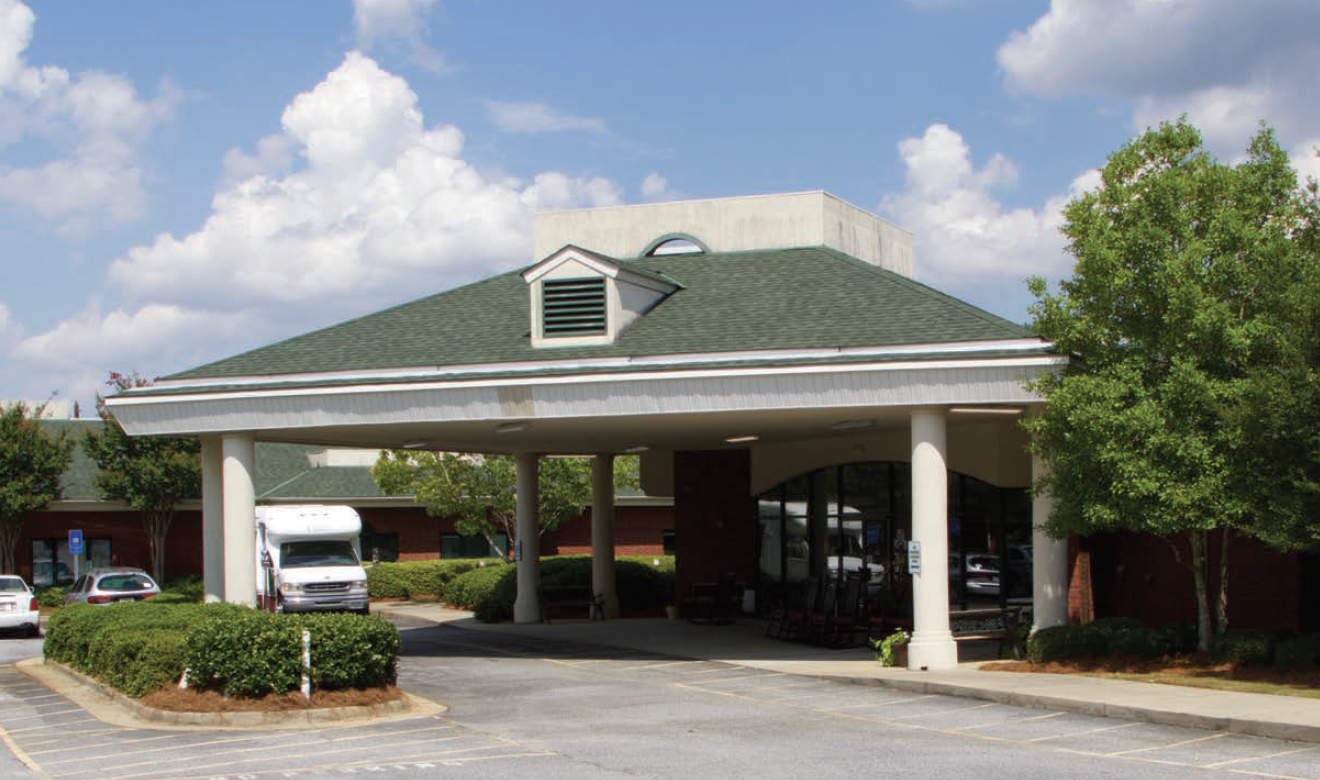
Friendliness
Depending on your level of care, you will likely be interacting with many different staff in your retirement community. During site visits, speak to as many staff members as possible to get a feeling for the level of job satisfaction and happiness among staff. Note whether someone greets you upon entrance, and whether staff seems genuinely happy to see you.
Return Visits
Although you may have a gut feeling after your initial site visit, we recommend making at least one more visit to any senior living communities that are on your “short list” of choices. During your first visit, you may be overwhelmed by details and information. You may forget to ask all the questions above (or whichever questions are on your list). But at a minimum, return visits help you get more of a “feel” for everyday life in a community. That experience is invaluable.
Making at least one visit during the day and one visit at night can be especially helpful. During the day, observe some of the campus activities and social behavior among residents. Be sure to taste the food (!) and ask any questions of the kitchen staff that may be relevant to you. Visiting at night can help you gauge the atmosphere during quieter times, and also allow you to meet some of the staff who works later or overnight hours.
We have had many residents who moved to Magnolia Manor after initially moving into another senior living community. They were initially dazzled by new buildings and pretty decor. But upon moving in, they realized that the focus in these communities was not primarily on the residents. Here at Magnolia Manor, we exist and are here for our residents. Bar none. Top priority. That, unfortunately, isn’t always the case for all communities. Multiple site visits can help you identify whether that initial “shiny, new” feeling has merit, or whether it’s more of a façade.
Congratulations!
You’ve taken the time to gather information, identify what’s important and visit a short list of communities that fit your needs.
Now it’s time to make a decision.
 The right choice many have easily identified itself during your site visits, or perhaps several campuses stand out. In that case, it may be prudent to sit down with your children, grandchildren or other friends and loved ones to help make a decision.
The right choice many have easily identified itself during your site visits, or perhaps several campuses stand out. In that case, it may be prudent to sit down with your children, grandchildren or other friends and loved ones to help make a decision.
Once you’ve made your decision and are ready to sign on the dotted line, it’s time to enjoy some peace of mind, knowing that you’ve made a decision that will positively impact your quality of life for many years to come.
PS: we hope you’ll become part of our Magnolia Manor family, where It’s about life!...It’s about living!
Nine Exceptional Senior Living
Campuses throughout South Georgia
Are you considering options for yourself or a loved one? Magnolia Manor is available to discuss your needs and help you plan your future at one of our campuses, where residents thrive – mind, body, and spirit.

Contact Magnolia Manor today to schedule a tour of a campus near you.
Once you have visited Magnolia Manor, you will understand why our residents love living here. Our caring and compassionate staff of servant leaders have been recognized for Dedication to Care by the National Quality Award Program of the American Health Care Association and National Center for Assisted Living.

